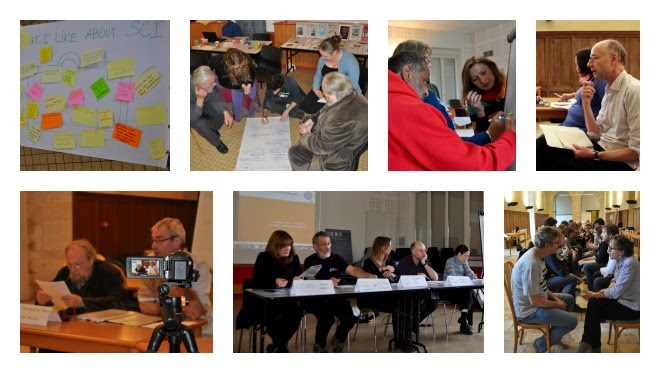Memory beyond Rhetoric

October 2014 - February 2016
The idea
Looking back 100 years to understand the present we face and build the future we yearn, World War I forever changed the course of history and marked the start of the 20th century in many ways. One of its main consequences was the growth of nationalism and violent contraposition between the European countries. But at the same time, some thinkers and visionaries dreamed about a unified Europe.
Today, Europe is in a deep crisis. Citizens no longer trust the European project, and quick solutions for the social and economic problems are sought without success. It’s in this context that remembrance became inspiration for our future. And it’s in this context too, that the project “Memory beyond Rhetoric, the WWI and the growth of the pacifist movement in Europe” wants to raise awareness about and remembrance of WWI, and promote a mature idea of peace, anti-militarism and non-violence. At the same time SCI will deepen the link between WWI and the origins of the organisation, which arose (indeed) from those who dreamt of a peaceful Europe. Or as a slogan in one of the activities of the project says: Paths which once separated us, shall unite us today.
SCI remembrance project aimed at:
1
promoting peace, anti-militarism and non-violence
2
encouraging active participation at European Level
3
Contributing to citizens’ understanding of the Union, its history and diversity.
Its main purpose is to endow citizens with significant knowledge about that part of our history, exploring the links between WWI and the creation of bodies that would avoid such a tragedy to happen again.
The project reflects on the importance of memory but also on how memory is built and transmitted, trying to deconstruct the myth of the sacrifice of soldier-hero and bringing the idea of war back to where it belongs: mass-destruction and eruption of violence.
The activities
Memory beyond Rhetoric included the organization of activities in some of the most meaningful scenarios of the First World War, such as the international seminar in Verdun (France) where the “Battle of Verdun” was fought in 1916 and where Pierre Cérésole organized the first SCI workcamp.
The project included training courses, seminars, study camps and events.
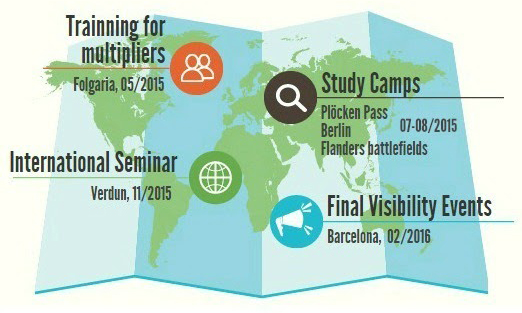
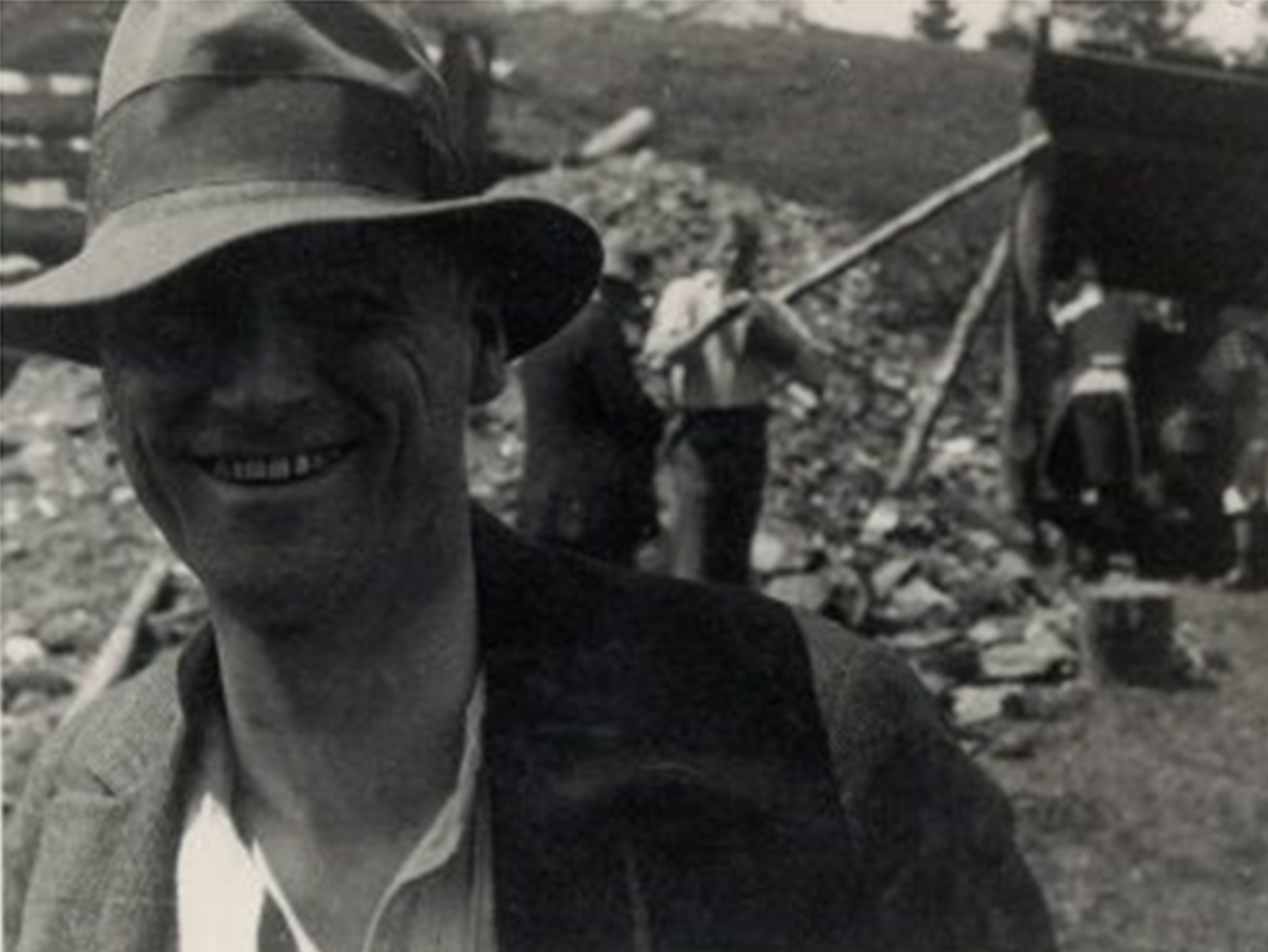
Preparatory activity
Lozen (Bulgaria), 16 – 19 October 2014
The team discussed the project objectives and analyzed key terms such as Memory, Remembrance, Pacifism and War. The debate was also stimulated by to the visit to the National Museum of Military History in Sofia, with its exhibition on WWI.
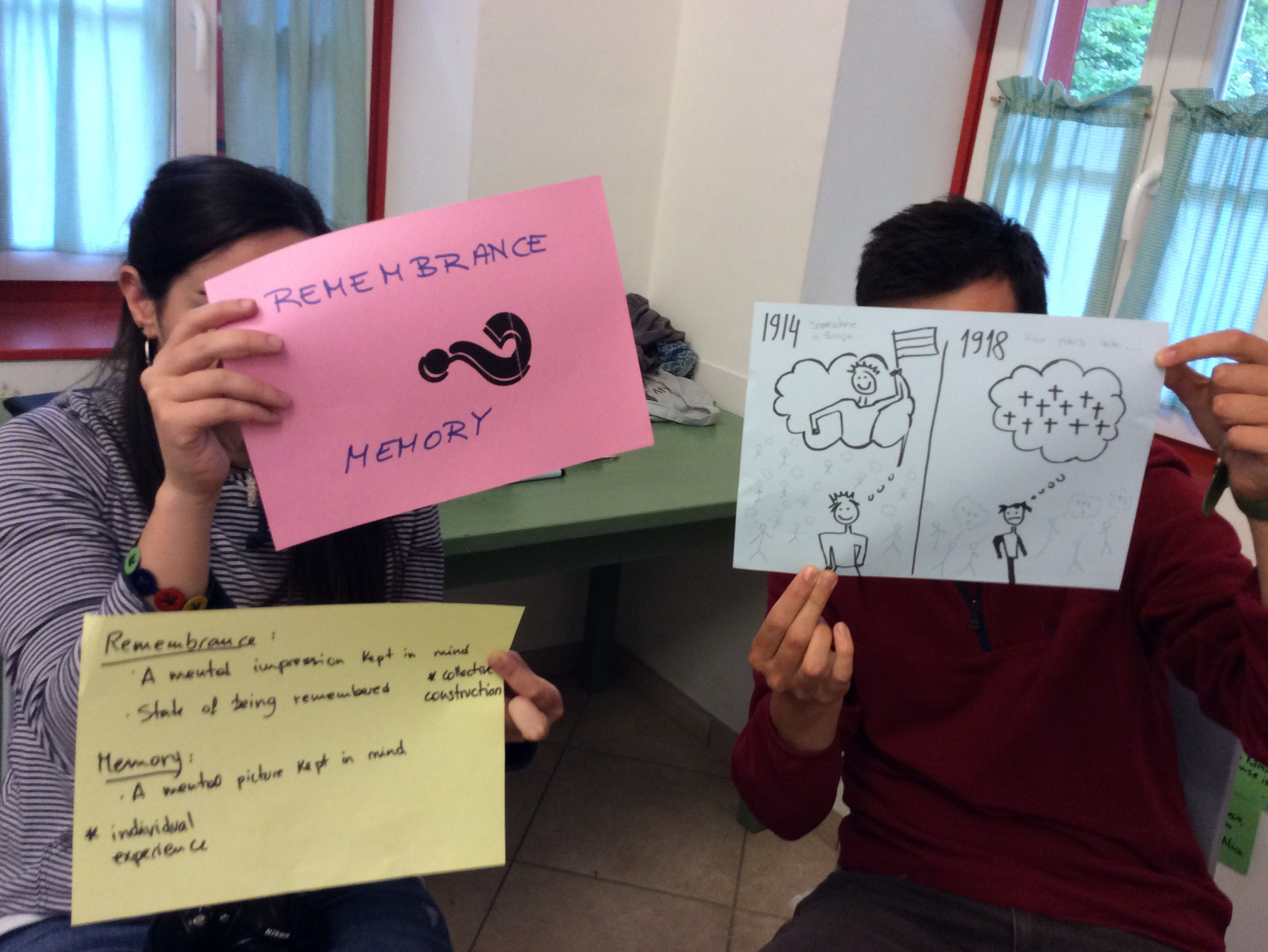
Training for multipliers
Folgaria (Italy), 21 – 28 May 2015
The training took place in the north of Italy, along the WWI front, where 25 participants coming from different countries gathered to share experience and create new tools to be used within the Memory beyond Rhetoric project.
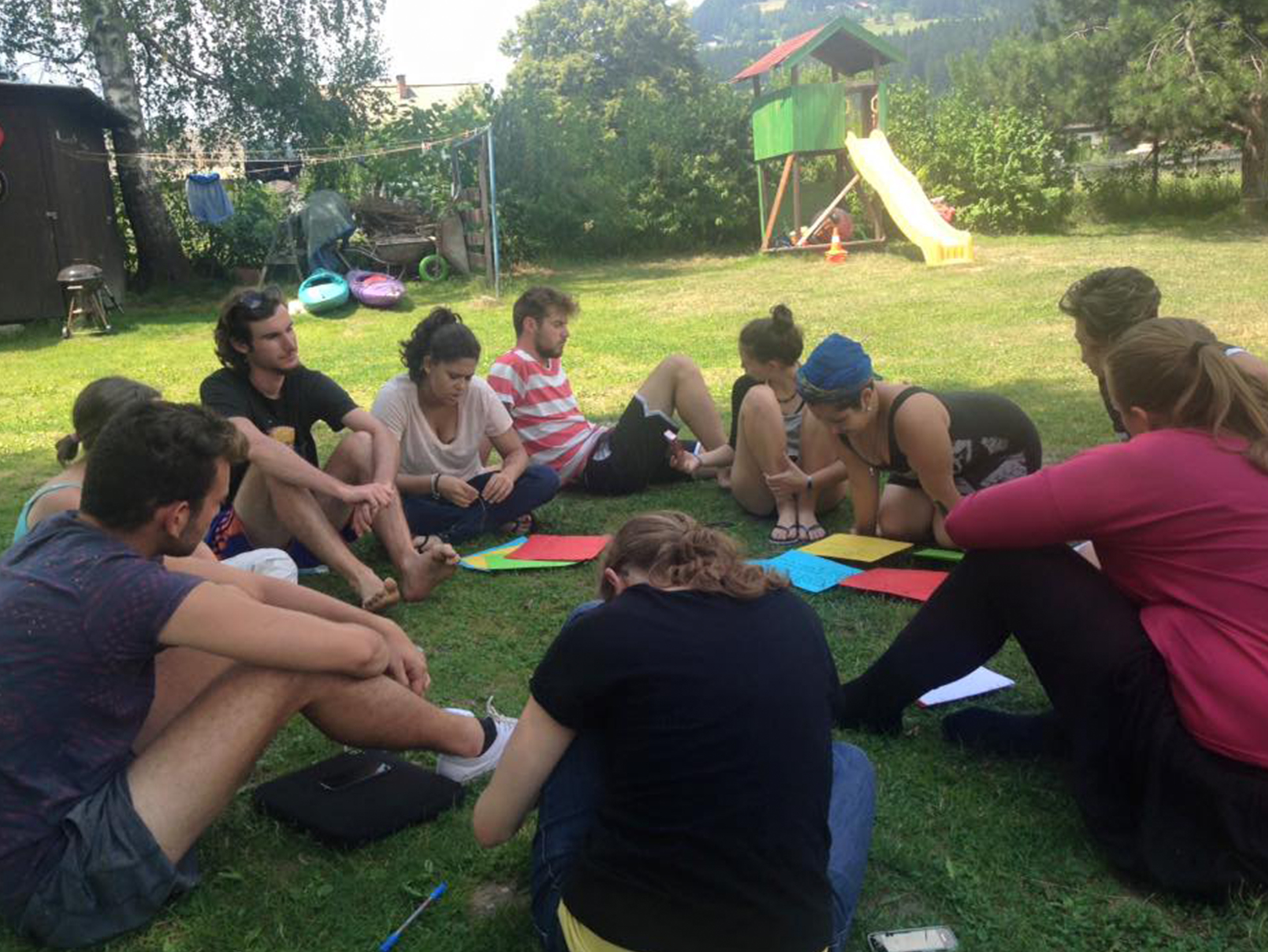
Bilateral Study Camp (Italy – Austria)
Kötschach-Mauthen (Austria), 14 – 24 July 2015
The first of three Study Camps at former sites of WW1 in Europe took place in Kötschach-Mauthen in the South of Austria, very close to the trenches where Austria-Hungarian troops fought against Italians.
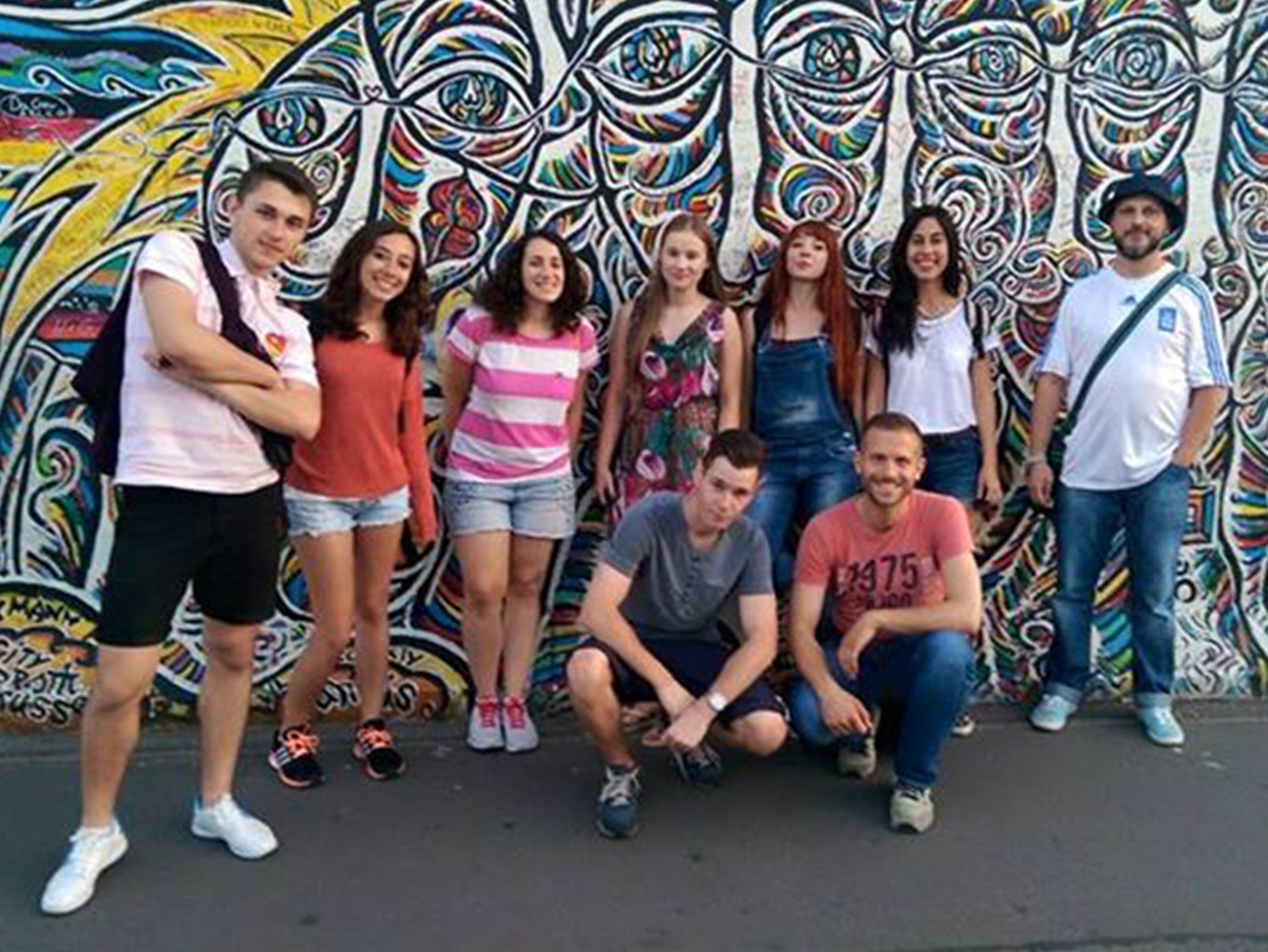
Multilateral Study Camp
Berlin (Germany), 17 – 29 July 2015
The second Memory beyond Rhetoric Study Camp was held in Berlin, where participants gained a new perspective on Berlin during WWI and created an interactive virtual museum in a video game Minecraft.
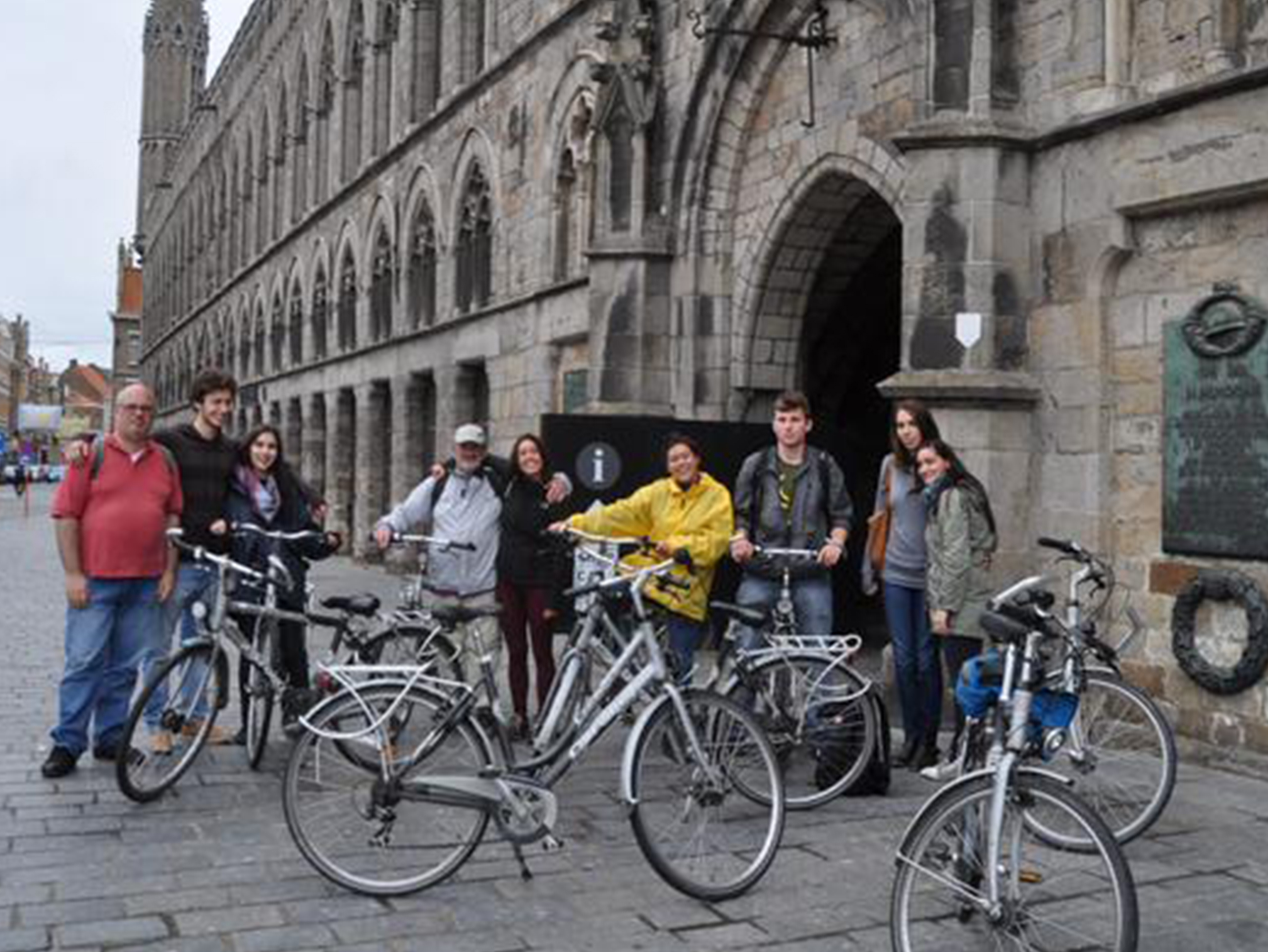
Multilateral Study Camp
Ypres, Poperinge, Mesen and battlefields in Flanders, Belgium, 23 – 30 August 2015
The study camp involved 27 participants who were involved in different local activities, including a visit to the local Museum “In Flanders Fields”, and created their own street peace action.
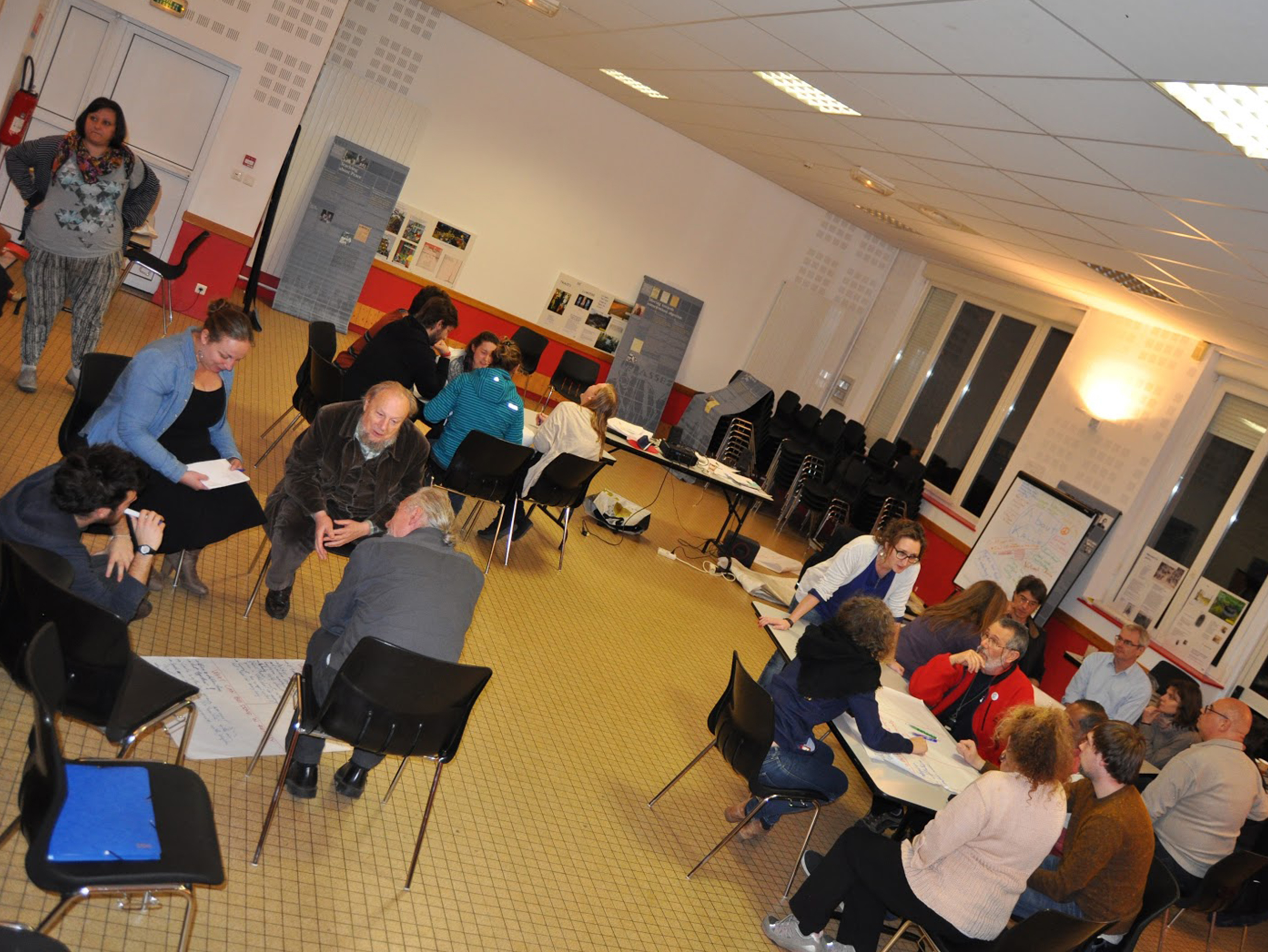
International Peace Seminar
Verdun (France), 11 – 14 November 2015
The event gathered 31 European citizens and focused on the growth of the pacifist movement in Europe, from WWI up to now and analysed the meaning of pacifism and volunteering for peace today.

Final Visibility Event
Barcelona (Spain), 19 – 21 February 2016
The final visibility events saw the participation of 60 citizens. The events included the launch of the exhibition “SCI, between war and peace since 1920”, meeting a group of local activists for a visit to two key places for the Catalan Memorial: The Maternity of Elna and The Exile Memorial Museum, and work on possible follow-up actions.
Resources
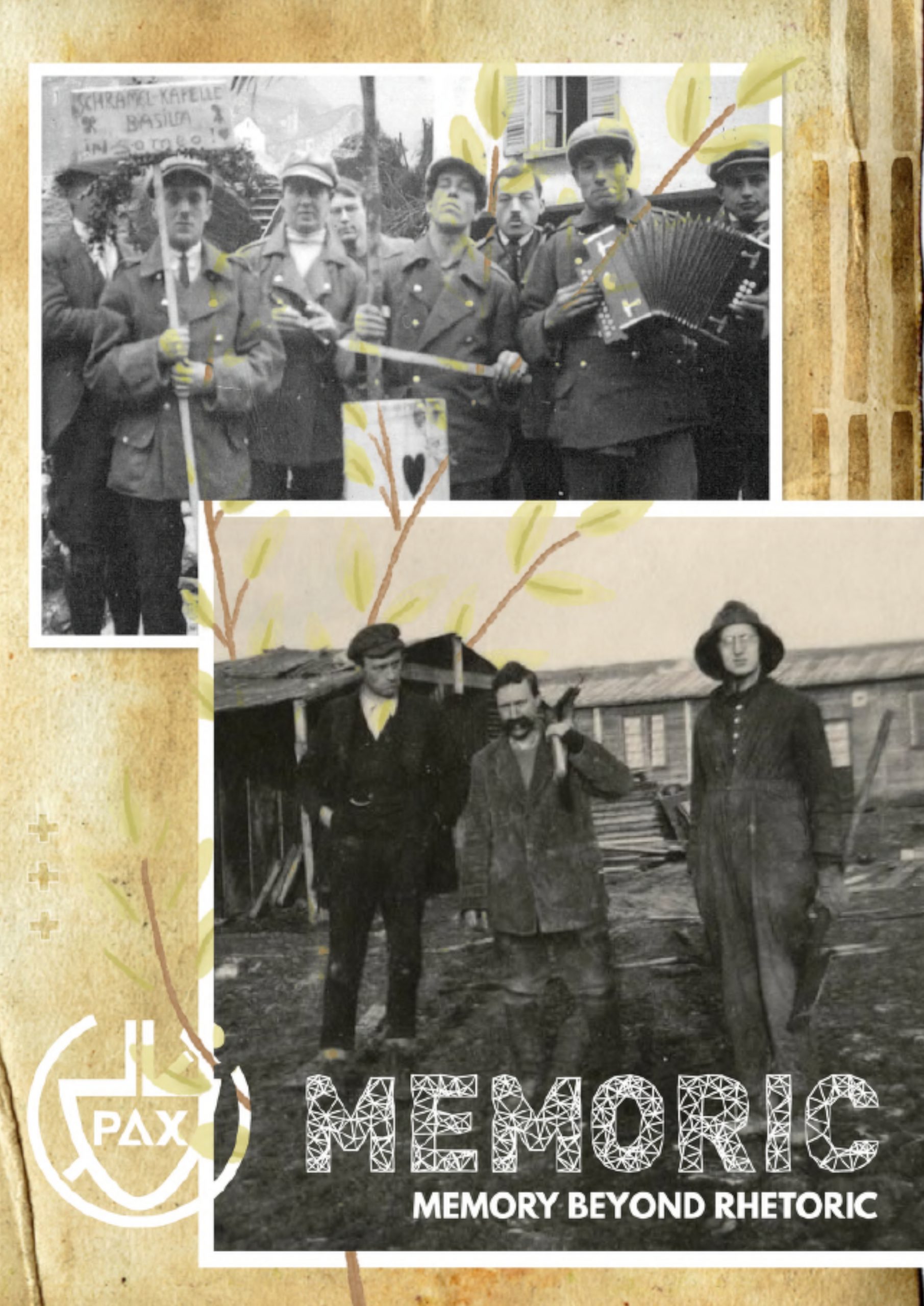
Memory booklet
The Memoric Booklet is the final product of the project and collects reflections on the war, the pacifist movement, testimonials and activities.
Peace Action in Ypres (Belgium)
This action was organized and done by the participants of the Multilateral Study Camp that took part in Ypres (Belgium) from the 23rd to the 30th of August 2015. This Study Camp, focused on WWI remembrance and pacifist movement, took place within the frame of the project Memory beyond Rhetoric: WWI and the growth of the pacifist movement in Europe and it was cofunded by the Europe for Citizens Programme of the European Union.
Supporters and partners
Supporter

Partner organisations
Memory beyond Rhetoric was carried out by the following organizations within the SCI movement:
- The Association of Service Civil International, Belgium.
- Service Civil International Österreich, Austria
- Servizio Civile Internazionale, Italy
- VIA vzw, Belgium
- Service Civil International – Deutscher Zweig e.V, Germany
- Servei Civil Internacional de Catalunya, Spain
- Utilapu Nemzetkozi Epitotabor Halozat, Hungary
- Cooperation for Voluntary Service – Bulgaria, Bulgaria
- Volunteers’ centre Zagreb, Croatia
- Kinisi Ethenonton Service Civil International – Hellas, Greece
- Service Civil International – Branche française, France
- Volonterski Centar Vojvodine, Serbia
- Association Center for Intercultural Dialogue, Macedonia
- Seirbhis Deonach Idirnaisiunta, Ireland.
Final Visibility Events
Barcelona (Spain), 19 – 21 February 2016
The Memory beyond Rhetoric project came to its end with the Final Visibility events that took place in Barcelona in February. While immersed in the Catalan history and memory; the project coordination team retraced and evaluated the activities, shared the project tools and outcomes and discussed the next steps, especially leading to the 100th anniversary of SCI.
On the 19th of February, SCI Catalunya launched the exhibition “SCI, between war and peace since 1920”, a work that gathers the history and the role of the Service Civil International during the conflicts that devastated the world in the aftermath of the First World War.
The exhibition was opened by a round table, in which the Memory beyond Rhetoric representatives discussed the current and past challenges for peace with local experts in historical memory and refugees. The exhibition remained open until the 9th of March 2016 at the Memorial Democratic.
On Saturday 20th of February, the group met a group of local activists for a common visit to two key places for the Catalan Memorial: The Maternity of Elna and The Exile Memorial Museum.
The Maternity of Elna is an institution supporting exiled women from the Spanish Civil War. Founded in 1929, this Maternity saw the birth of 600 babies, whose mothers were refugees in the camps close to Elna. The Maternity of Elna was also known as the Swiss Maternity, as it was promoted by the Swiss organization, the Swiss branch of Service Civil International. Assumpta Montellà, expert and author of the book “La Maternitat d’Elna” guided the visit together with some members of Elna city hall. The study trip included also some stops in key historical places linked with Memory, such as the ‘Campo de Argelés’, an internment camp for Spanish refugees during the civil war.
The day ended with a visit to The Exile Memorial Museum – MUME, a place for memory, history and critical reflection. This is an interpretation center which recalls the exiles brought about by the Civil War in Spain and Catalonia. Above all the exile of those defeated in that conflict inseparably linked to the Europe of the ascent of totalitarianisms and which was the prelude to the Second World War.
All these inputs were further analysed on the last day of the event by participants and key representatives of the Memoric Team met to plan possible follow up actions. Different activities were proposed, as the event and the project as a whole constituted a great source of inspiration for activists and partners.
All and all these final visibility events saw the participation of 60 citizens coming from Bulgaria, Belgium, France, Germany, UK, Italy, Portugal and Spain.

Preparatory activity: Memoric launch in Bulgaria
Lozen (Bulgaria), 16 – 19 October 2014
The project coordinating team counted on the support of the No More War Team and the International Archives of SCI. The event involved 13 citizens from Belgium, Greece, Austria, Albania, Germany, Italy, Bulgaria, the Netherlands and Serbia. During four days, the coordinating team of the project shared expectations and experiences, discussed the future project plan and set up the steps to follow.
The aims of the event were to create the coordinating team of the project and a detailed work plan; to create the space for partners to share useful information and tools; to agree on the shape of the final booklet; to highlight the European dimension of the project and make it clear to all partners; to set up monitoring and evaluation tools; to increase the awareness about the importance of reflection on history and memory for the creation of a better Europe; to achieve a better understanding of the role peace organization have now and had in the past, especially during the WWI.
We all know about WWI. Most of us have probably heard stories from our parents or grandparents. It is an important period well marked in every history book. We have all seen movies, read about it in the media…we know its facts and dates. But what makes history is also the way we remember it, the way it is told and taught from generation to generation.
Although memory is personal, remembrance is a constructive experience. And the process can be biased, as the same events are analyzed with different approaches. The narrative we get from WWI is a remembrance focused on war and soldiers. We have hardly heard about those who stood against the war, against any fight of any kind. They fought for us too without any violence. In SCI we thought that the remembrance was missing a part we want to bring out, more focused on human stories, founded not only on the artefact but also on the logic and connection with today; seeking the positive aspect of the story in a more horizontal approach.
What’s beyond the rhetoric? What’s beyond the poems and the poppies? Is there courage and honor or mass-destruction and violence? There is an important lesson not to be forgotten and big mistakes not to be repeated. And there is also the seed of the pacifist movement and the origin of SCI.
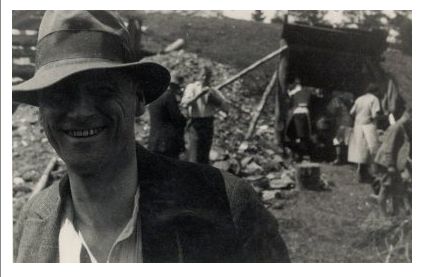
Pierre Cérésole, SCI founder
Training for Multipliers
Folgaria (Italy), 21 – 28 May 2015
The participants of the Training for Multipliers stayed for those seven days in Casa Quercia, a house managed by the group GIOVANI 2000. Its geographical position meant that it was used as a hospital during WWI, and as an orphanage after it. It is situated in the north of Italy, in the heart of the Dolomites Mountains, very close to the Austrian border. Working there, the participants could feel very connected to the story of the place and at the same time were very inspired by the natural beauty of the region.
The event involved 26 participants coming from Germany, Hungary, Bulgaria, Ireland, Serbia, Belgium, Czech Republic, Russia, Slovenia and Italy.
The aim of the event was to gather peace and remembrance messengers from different countries and backgrounds to implement activities in line with the topics and the spirit of the project. Other aims of the event were: to raise awareness about the importance of memory and how it is built; to reflect on the cost of non-Europe, on pacifism and participation; and to encourage participants to contribute and develop project activities and follow up actions in their countries.
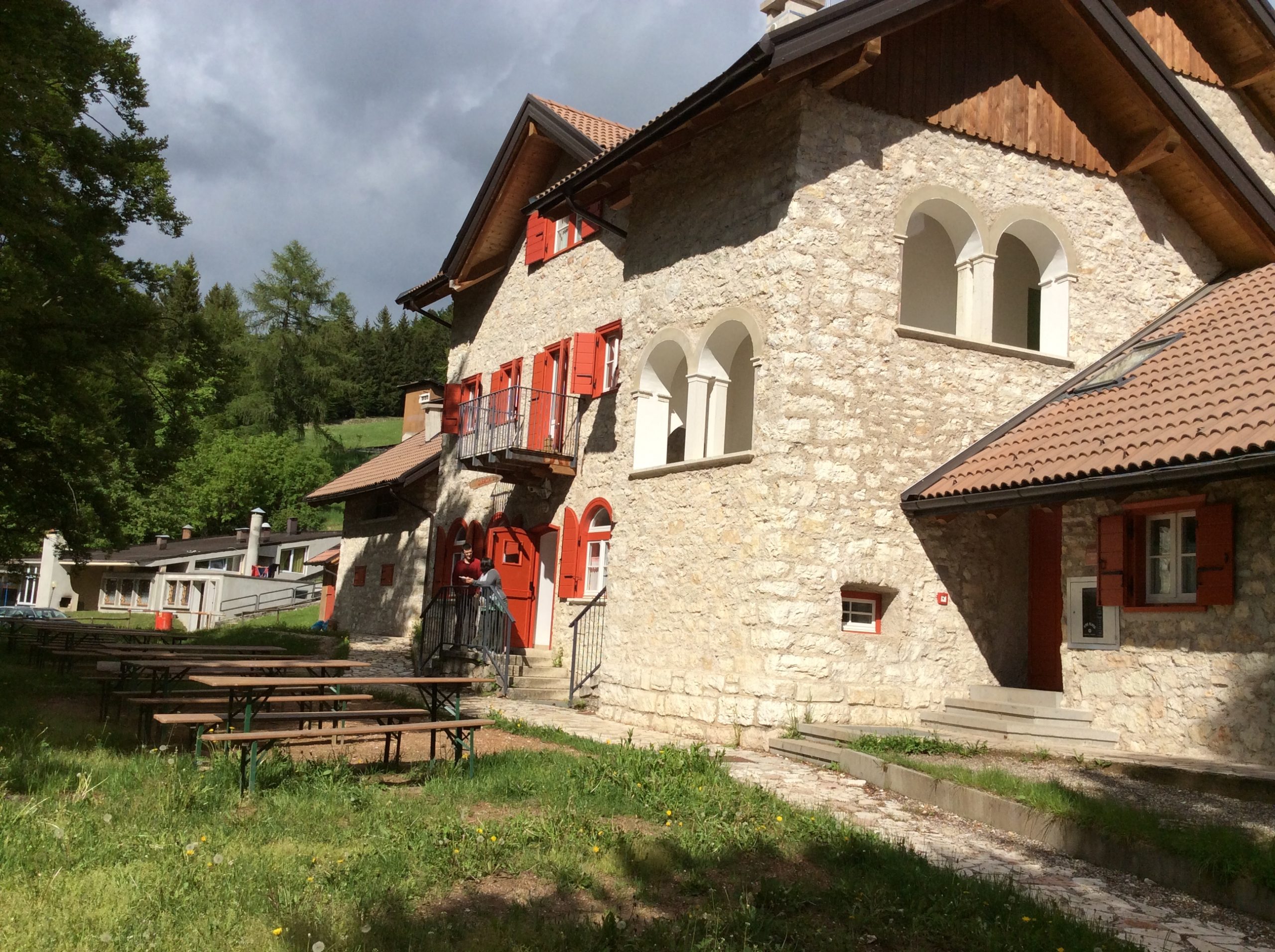
Photo by Mariia Buldakova
The training started with some team-building activities, so the participants could get to know each other and create a nice environment, comfortable and productive, to work together during the following days. The sessions advanced and focused on the topic of the First World War, always looking at it from the pacifist side. Valerie and Katerina, the trainers, made sure to bring some light to the human part of WWI, so often forgotten. Through a variety of workshops and discussions, the participants delved into topics like the role of women, the situation of those who refuse to fight, storytelling of the war. From there, they started talking about SCI history, seeing the link between the organization where they are currently involved and the Battle of Verdun in 1920. Indeed, that’s how it all began when Pierre Cérésole and a small group of International Volunteers came together in order to reconstruct the war-damaged village of Esnes-en-Argonne, being a symbol of reconciliation between France and Germany. Among the small group of international volunteers were also three German volunteers and they built up temporary homes for the villagers and cleared the farm land. That was the first time for what nowadays we are so used to calling an “International Workcamp”.
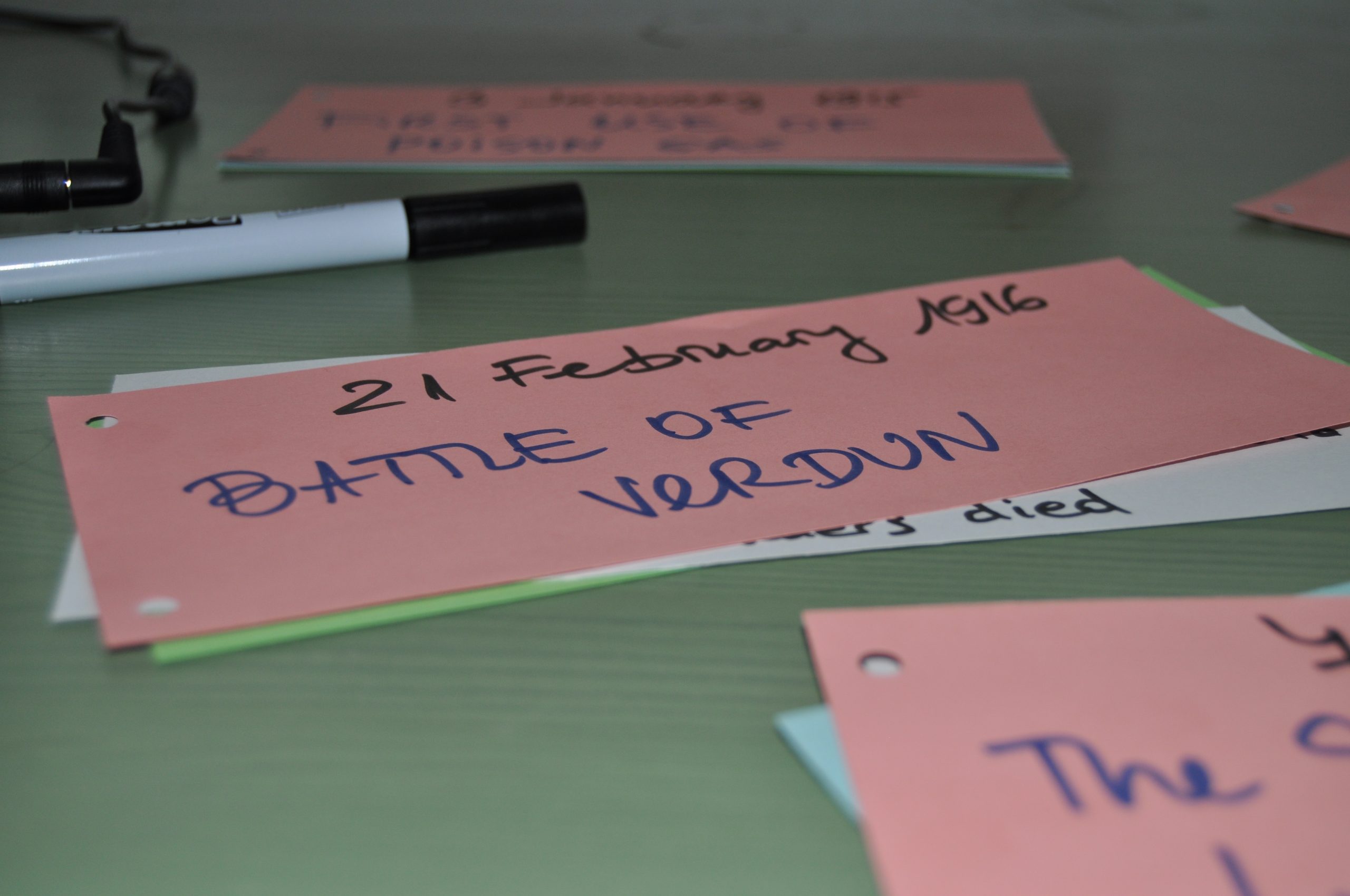
Photo by Marta Palau
And after a deep look into the past, it was time to come back to the present and work on creating together. The participants spent the last days of the training designing and running workshops on the following topics: Human Rights, Peace Building and the Changes in the European map after WWI. They were at the same time inventors and testers, which was very useful in order to learn about planning, group dynamics and working as a team.
All the participants that took part in this training became “Memoric Multipliers”. That means that during the following months they will all be involved in activities, events, workcamps or training courses related to WW1 and the pacifist history, promoting a culture of peace.
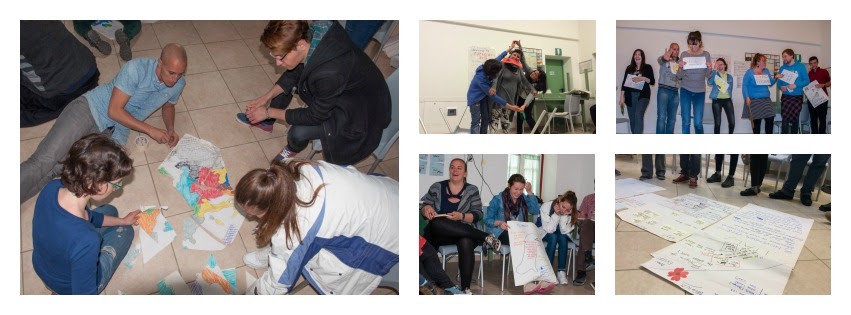
“It was very easy to work together; everybody had so much to offer and to contribute to the group… not only during the study session but also in the free time! We focused on the human part of WWI and at the same time, we met the human part of the Memory beyond Rhetoric project, the people that is and will be spreading its message. From now on I think that Memory beyond Rhetoric has a soul, and a very nice one!”
Marta, participant
“The group we have been working with has been a great combination of participants: Some of them have a strong background regarding workcamp coordination; others, a vast knowledge of WWI and/or the story of pacifism; others great experience in peace building and conflict resolution… And all of them are full of energy and motivation during all the sessions.”
Katerina, trainer
“My favorite part of the training was the workshop on nonviolent communication, because I think I can use it in my daily life very often”.
Farid, participant
“I was surprised to see the strong link between pacifism during the WWI and the peace movement today. I think that learning about the past gives the present new nuances for those who haven’t lived it. I’m even happier now to be involved with SCI!”
Zuzana, participant
“It was very interesting to listen to different participants coming from different countries explaining the First World War with their own words. I remember that in school I studied this part of history, but I see now that it was strongly influenced by my country’s point of view. I think that after this week, I understand it much better than after memorizing my school books”.
Stefania, participant
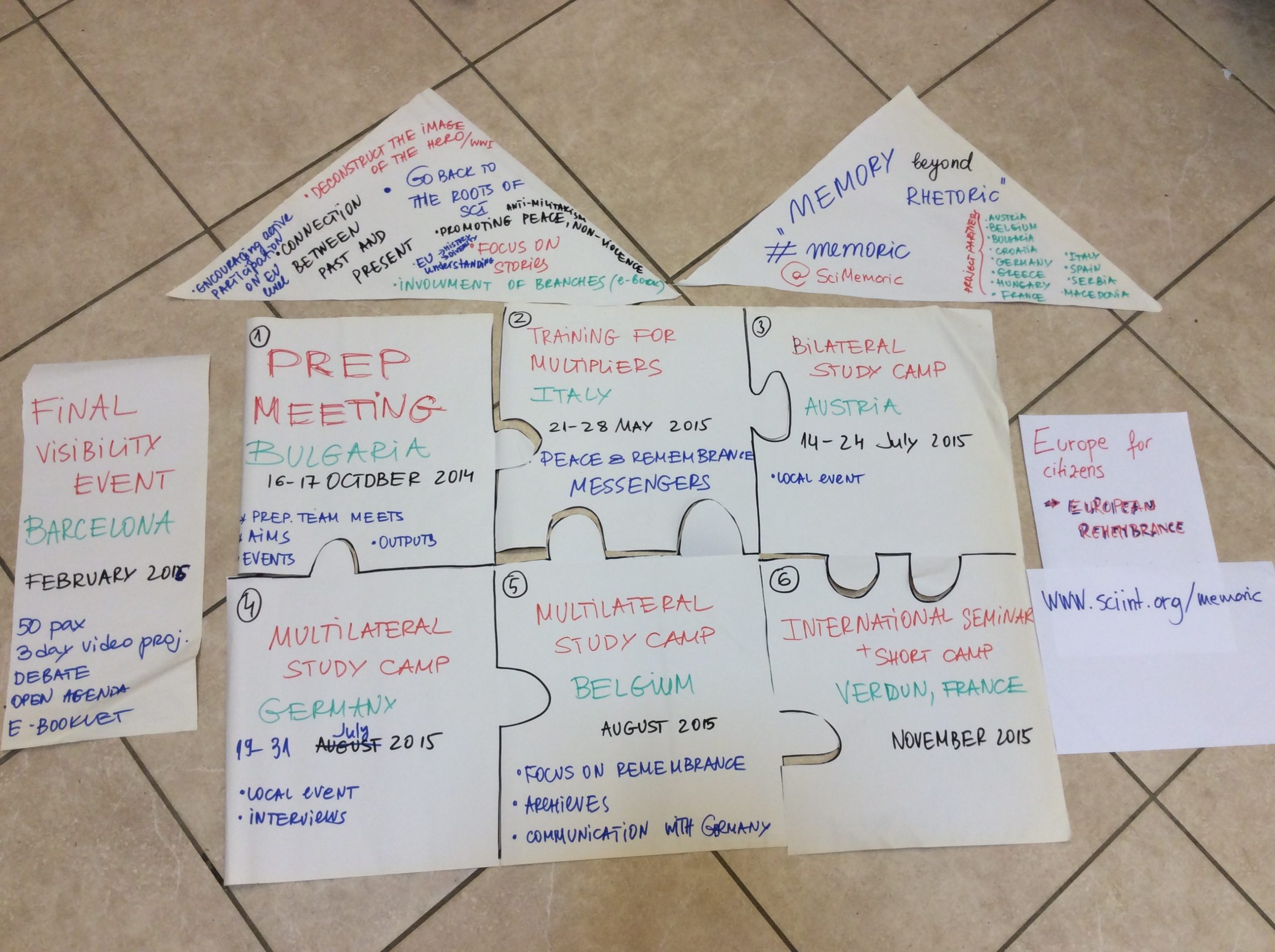
Photo by Mariia Buldakova
Bilateral Study Camp (Italy – Austria): Paths of Peace Study Camp
Kötschach-Mauthen (Austria), 14 – 24 July 2015
“Memory beyond Rhetoric” included three Study Camps at former sites of WW1 throughout Europe. During these activities participants from former enemy countries came together in order to reflect on the horrors of war, critically analyse the myth of the soldier as a hero and look at connections with present day politics.
The first Study Camp took place in Kötschach-Mauthen in the South of Austria, very close to the trenches where Austria-Hungarian troops fought against Italians. Kötschach-Mauthen is a small town, famous for the impressive landscape around and, close connections to Italy, and an Open Air Museum on WWI. The 26 participants came from Italy (6) and Austria (20) making it a bilateral study camp.
The aim of the event was the reconstruction of old trails and historical sites for the improvement of the Open Air Museum; to raise awareness about WWI and its legacies; to make a connection between past and present with focus on anti-militaristic message and necessity of participation; to increase the understanding of the Union, its history and diversity; debunking of the myth of the hero-soldier, and to collect material for the final booklet. The participants were stimulated in further investigating the proposed topics and realized a workshop in a local school.
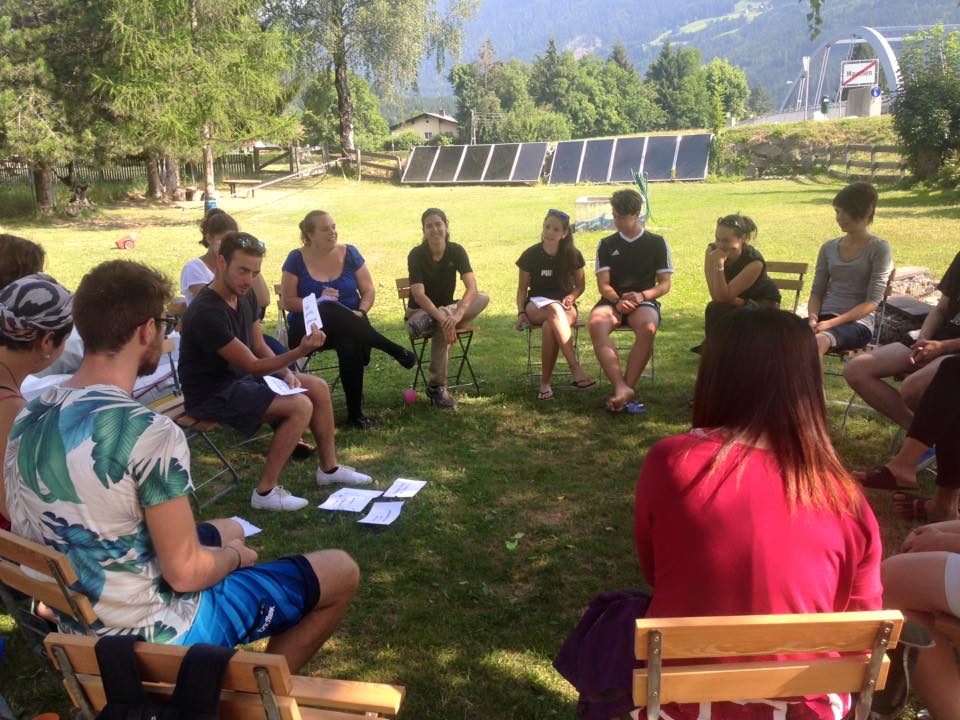
The volunteers did research on the First World War on their own and also in guided sessions. All participants took part in discussions, the creation of study materials and exchanged ideas openly with each other. They started with team-building games through discovering the place and distributed all the work among themselves, such as cooking together, cleaning, time keeping, etc.
As a first step the participants constructed a timeline of the main events that happened during the First World War and then presented it to the group. Afterwards they added the main events of the Austro-Italian front in the timeline and discussed it in detail.
As SCI was founded shortly after the end of the First World War, they also focused on SCI and its connection to WWI, making a social media report, taking photos and collecting ideas on peace work in general. Pacifism during and after the war was a very important topic in general. Deep reflection was made on this as well as the definition of peace and non-violence in the group.
A movie night was organised with films related to the topic as well as a human rights and maps workshop to better understand the entire affections of the war.
The group especially focused on the topic of propaganda during WWI. The participants created their own propaganda flyers. As part of the propaganda session they visited a special exhibition in the Museum 1914-18, which was about arts in wartime. In another workshop they talked about the construction of war heroes and heroines and also their deconstruction. Heroes and heroines of pacifism had been very important in the sessions, as well as pacifism movements today and their heroes and heroines. In a workshop about remembrance, the creation of national heroism and the channels and communities of memory work were discussed.
In order to better understand the topic the group visited the Open Air Museum on the Plöckenpass high up in the mountains. A whole day was spent hiking in the mountains and talking with the participants of the other SCI workcamp at the Open Air Museum, The volunteers also visited the Museum 1915-18 in the town of Kötschach-Mauthen run by the “Friends of the Dolomites”. In a small theatre play they learned about male and female roles in WWI. Furthermore a workshop was organised for the other SCI-workcamp where the participants of the study camp taught them what they had learnt about WWI so far. As a final event the volunteers presented their knowledge in a workshop to local people in a public event.
Multilateral Berlin Study Camp
Berlin (Germany), 17 – 29 July 2015
The second Memory beyond Rhetoric Study Camp started with a Memoric guided tour organised by SCI Berlin local group. The 29 participants (of which some joined the full study camp and others just the public events) came from Germany (17), Netherlands (1), Spain (2), Croatia (1), Poland (2), Czech Republic (1), Italy (1) and Finland (1), with 3 special guests from Ukraine (1) and Turkey (2). Participants visited many places which played important roles during the 1st World War and gained a new perspective on Berlin in that time. The tour ended with a Memoric quiz where they answered important questions about the War and discussed how much they actually know about it.
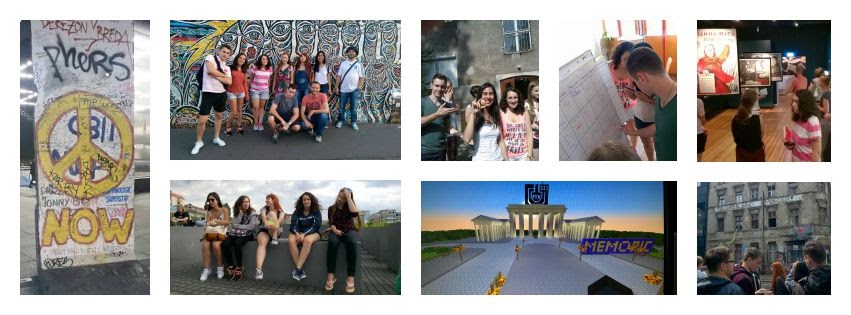
Since participants were creating an interactive virtual museum in a video game Minecraft, the biggest part of their programme consisted of museum visits and learning how to use both the knowledge they had and the newly gained knowledge to create something that will not only exhibit the war but also make people think. Participants received valuable input from the guides in the German-Russian Museum Karlshorst, Museum of German History and the Anti-War Museum.
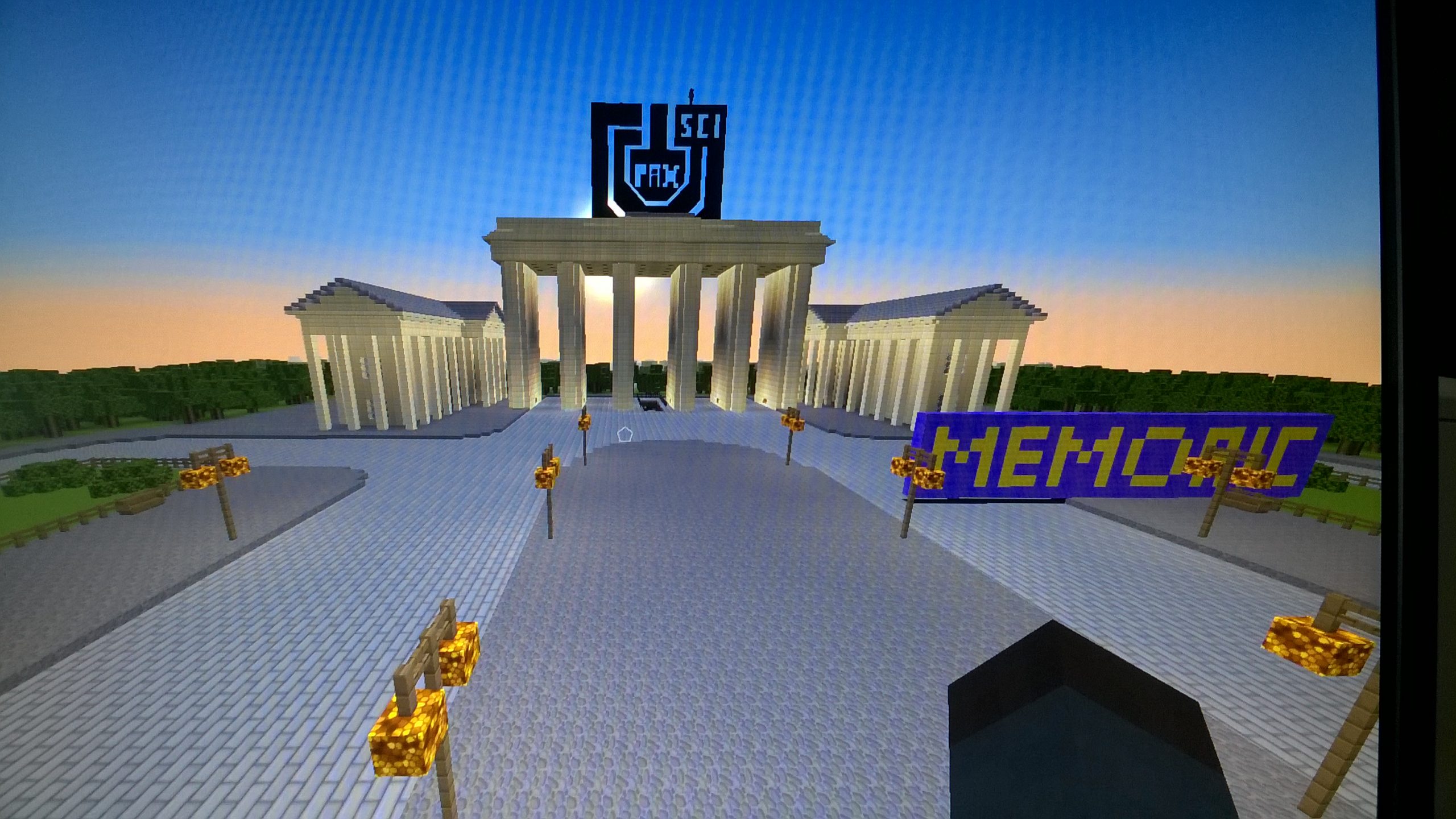
After receiving training from Medienkompetenzzentrum Pankow on how to use professional cameras, interview equipment and Minecraft game as a tool, participants split in two interest groups and worked separately on building the museum and creating and filming the content to be exhibited. The interview-group went on the streets and made interviews with both passers by and guides in museums, asking them questions they prepared beforehand. The Minecraft-group worked hard on stacking blocks and getting the building of the museum ready for the exhibition. Sounds like fun? It was, but hard work, as well! Of course, participants also had mutual sessions, as it was very important to plan the exhibition together and make sure they all shared the same image of both the museum and the message shown.
SCI history and the growth of pacifist movements was also an important part of the study camp. Participants organised an SCI-evening where their guest speaker Christoph Müller, an SCI activist for many years, held a session on SCI and its role in WW1. The session started with the first workcamp in Verdun and ended in present time, 100 years after the war.
The video of the virtual exhibition was shown during the public event organised in the Medien-kompetenzzentrum. Participants shared with guests their experience and discussed the topic of the remembrance of WW1 worldwide.
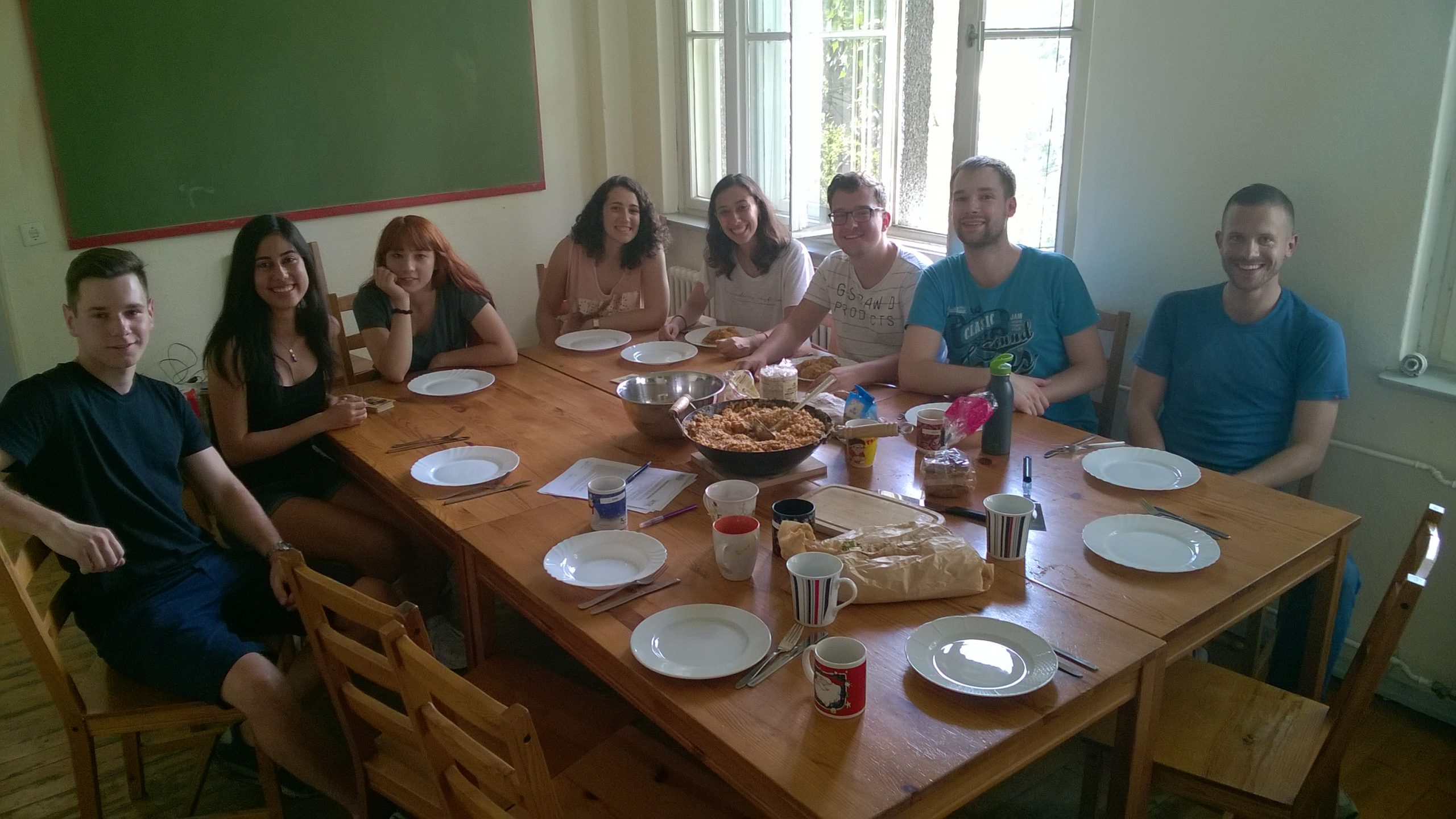
“I was very surprised when I arrived at the camp and found out that I was the youngest one. But the 2 weeks taught me a lot, not only how to work with professional cameras and record interviews, I also met some very nice, impressive and inspirational people.
In this camp I learned also about my city Berlin, because it was a chance to look again at the small but important things this city has to offer, which you usually do not see. In this study camp we worked on a virtual museum for minecraft about WW1. In the end we produced a short film with our virtual museum and our recorded interviews.
For me it was a nice time. I am glad that I have worked and lived together with some very nice people. The only thing I did not like were the very long discussions in the beginning.
But I would recommend everyone to participate in such a camp.
And to our camp members I want to say “It was a pleasure to work with you!”
Dimitry Kovalchuk, participant.
In Flanders Fields Study Camp
Ypres, Poperinge, Mesen and battlefields in Flanders, Belgium, 23 – 30 August 2015
For the third study camp, a team of international volunteers and peace activists gathered in Ypres, Belgium, in order to reflect on WWI and collectively find solutions to the current challenges that peace is facing in our world. Ypres occupied a strategic position during World War I, resisted Germany’s invasion during 1914, witnessed some of the biggest battles in WWI and suffered a huge number of casualties and destruction.
The study camp involved 27 participants from the Netherlands, Belgium, Italy, Spain, Czech Republic, Ireland and Romania.
The aim of the event was to raise awareness about WWI and how this memory is built and transmitted; to increase the understanding of the European Union, its history and diversity among participants; to refuse war as a mean to solve conflict and increase awareness about the importance of active participation; to stimulate participants in further investigating the proposed topics; to collect material for the final booklet; to create a public and interactive presentation of the journey. The participants also exchanged experiences with participants of other memory activities via Skype meeting.
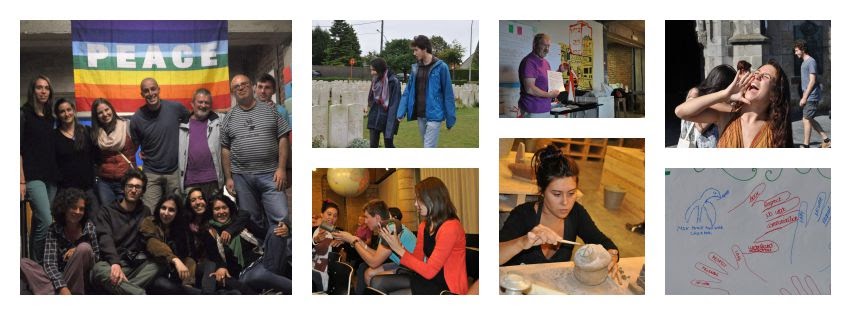
The place where chemical weapons were used for the first time in 1915 is now known as the city of peace and conserves a very tight link to its past. It was a meaningful scenario for this Memoric Study Camp. The participants, coming from various European countries brought with them lots of motivation and enthusiasm, rich experiences to share and creative ideas to build a peaceful future. The week started with some theoretical sessions about WWI, always with a special focus on personal stories and a human approach. The participants enjoyed a very interesting workshop and a visit in the local Museum “In Flanders Fields”. Through different workshops and sessions, the participants became more and more familiar to war remembrance and collective memory.
During the week they had the opportunity to get involved in different local initiatives: they met in first person the Ypres Peace Service, did their contribution to the artistic enterprise CWRM (Coming World Remember Me), and visited the Making Peace Exposition and the Last Post Ceremony. They also participated in “The Name List”, a research directed by In Flanders Fields Museum that aims at creating an inclusive list with information about all victims of WWI in West Flanders, including the ones of the “enemies”, bringing them back to history, regardless the nationality or the rank.
Knowledge sharing was also an important part of the Study Camp and all participants made a brilliant contribution, specially explaining WWI from different points of views. They present numbers, facts, and dates together with stories and literature, and some of them even shared family photos from relatives that fought during WWI.
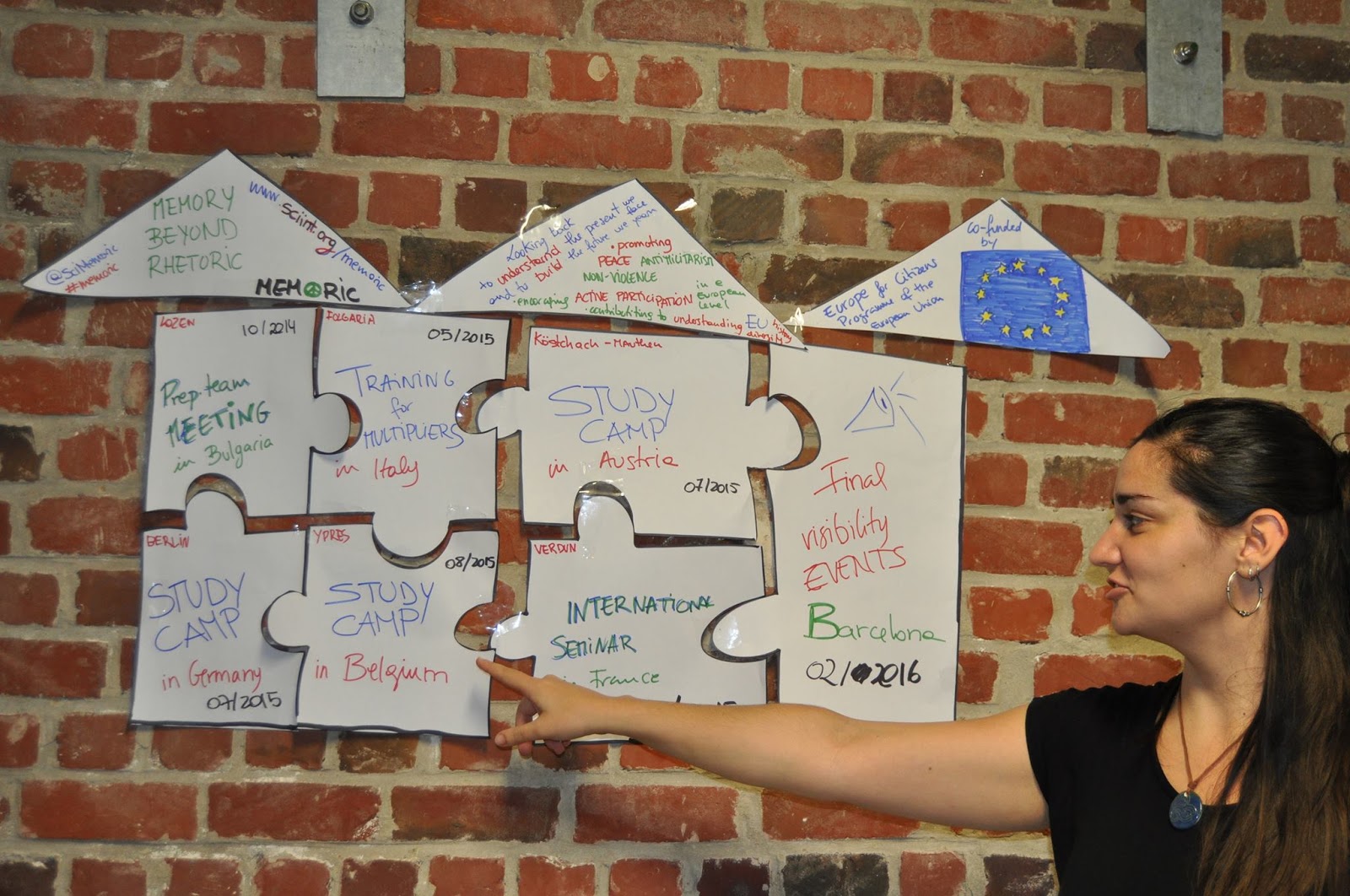
As the week was coming to the end, it was time to take action! After some practical tools were given to the participants (Non Violent Communication, Raising Awareness Actions and Theater of the Oppressed) they had to find the way to put peace into practice. Working together as a team and challenging their creativity they designed the final visibility action, which took place in Ypres’ Grote Markt on Saturday 30 of August.
Combining different techniques, the participants caught the attention of the locals and the tourists passing by and managed to create a perfect atmosphere for public debate and discussion on peace and war remembrance. A message was sent, loud and clear: war is never the answer, peace is always the way!
International Peace Seminar
Verdun (France), 11 – 14 November 2015
The seminar was organized together with the SCI International Archives and other peace and international voluntary service organizations, like CCIVS, Union Pacifiste de France, the Quakers and Accion d’Urgence Internationale. It focused on the growth of the pacifist movement in Europe, from WWI up to now and analysed the meaning of pacifism and volunteering for peace today. The aims of this event were to increase reflection on Peace and participation and volunteering now and in the past; to collect collect material for the final booklet; to raise awareness about the role citizens can and should play in Europe and for an improved world; to strengthen connections and exchange best practices between civil society organizations; and to raise awareness about roots of present Europe.
The event involved 31 European citizens from Italy, Finland, Germany, Catalunya (Spain), Belgium, Romania, Greece, Czech Republic, Ireland, Bulgaria, the Netherlands, France and Poland. The event benefited from the participation of special guests from India and Indonesia (experienced peace activists) and from Switzerland (representing the International Archive of SCI).
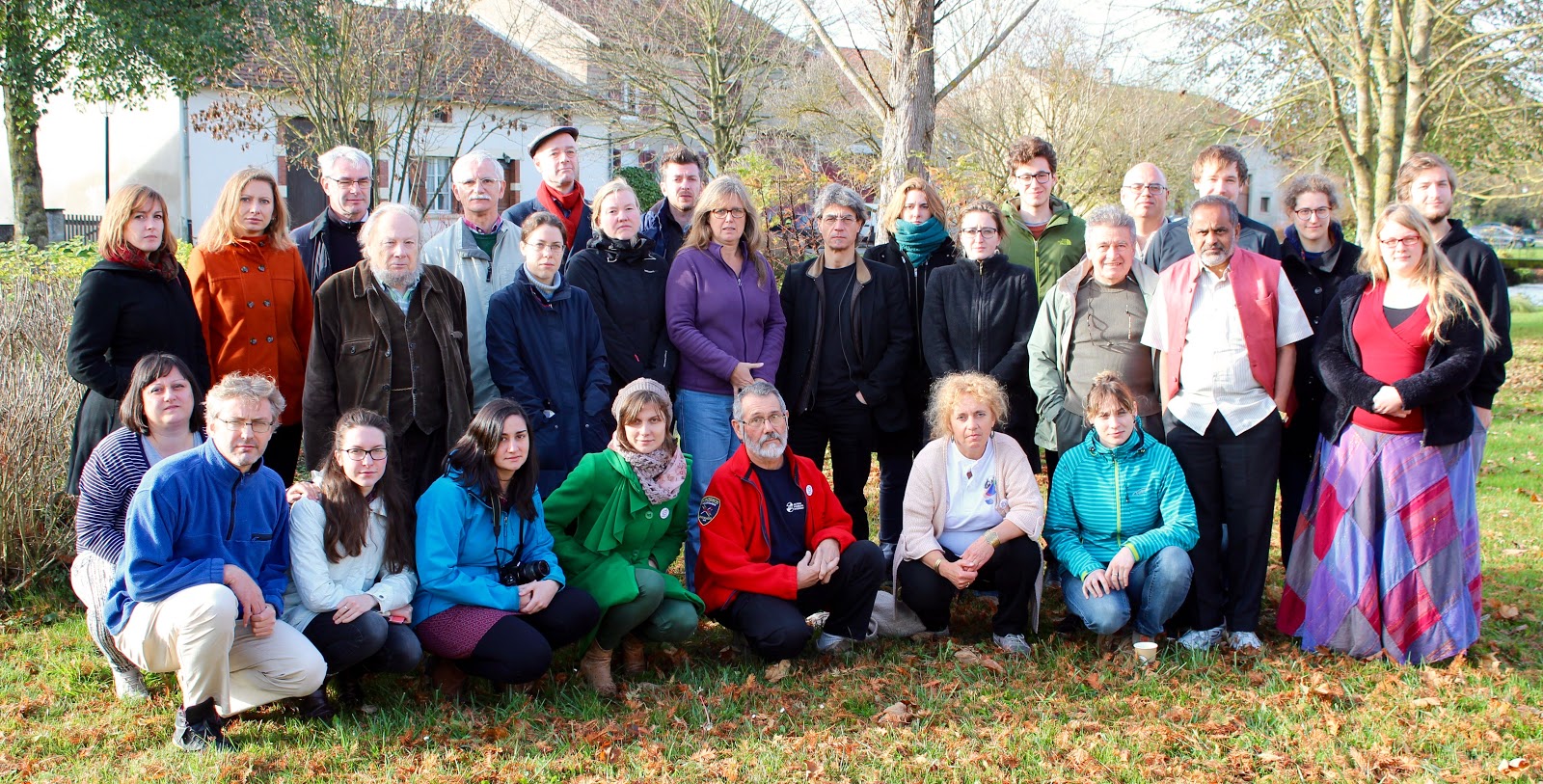
“For young participants and older ones, it was important to recall the history of SCI and pacifism and look for ways how to encounter new challenges in the recent and future time. Members of SCI, but also representatives of CCIVS, Union Pacifiste, Quakers and Action d’Urgence International brought their experience forward.
We had interesting discussions about peace in modern times and how this should be communicated. There was a general feeling it was time for reflection, without forgetting the actual deeds and also new forms of communication/commitment. Some members brought the concept of slow peace forward, meaning that we should act (again) from a vision and not be reactive to modern developments. An idea was even forwarded for a SCI-reflection group.
An interesting question was asked if Pierre Ceresole would be happy with SCI nowadays. As Ceresole was open for alternative views on his ideas and actions, maybe he would be not so critical. But probably he would react on the extent of our dependency on governmental and EU funds.
Younger members gained a lot from the stories of older activists. At the same time the input of younger activists was important to reflect on how we should think and act today.One thing will be sure: SCI will continue with the message of peace. We don’t agree with a world where there are wars/violent conflicts, we will oppose the enormous arms-trade in the world, we will keep and after the seminar even reinforce supporting the ideas of conscious objection and conscious objectors themselves, of which we had 6 participants among the whole group of 25 participants. Peace is the only way. And we will build on and work towards a more peaceful world, as we are convinced we can bring forward a positive alternative. We are not alone in this aim, the presence at the seminar of other IVS- and peace-organizations made us realize that cooperation and linking should be done.
We brought forward a statement about the terrible attacks in Paris and Lebanon, which happened during the seminar. We could not simply ignore such, or any kind of violence, while we are at the same time talking about peace and pacifism.
In the light of the upcoming 100th anniversary of SCI and international voluntary service this seminar was a milestone and also a starting point to reflect and set a new way of the concept of peace in the perspective of how SCI started. As participants we call upon the movement from now on to make serious work towards the 100 years anniversary. Not just to celebrate and to look back, but to be inspired and learn from the past and to go forward for the future.”
